It’s finally transcribed. Last month I interviewed Mr. Monteleone for the Maryland Writers’ Association’s 20th Anniversary Conference (which is this Saturday. There’s still time to register, and walk-ins are fine too). Tom is the Keynote Speaker for the conference, and he took some time out of his schedule to do this interview to promote the event. There’s a lot of great info, and I hope you find the interview as informative and fun as I do.
Borderlands Press
INTERVIEW WITH THOMAS F. MONTELEONE
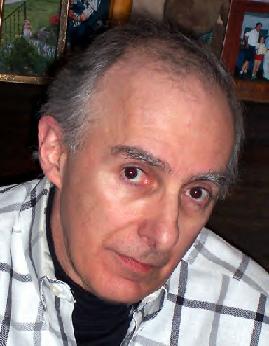
1) What was it like when you published your first book and how has the industry changed since then in terms of how authors are getting their books sold, both to publishers and to audiences?
TFM: You know, it’s a shame because it really has changed, and I think the industry has changed drastically. I’ve seen the marketplace go through some unbelievable changes. I started out writing short stories; I think I published 20 to 25 stories in science fiction magazines in the early ‘70s. One year I was at this convention, and I met this young agent who was looking for new writers, young writers, and he said, “Have you written any novels yet?” and I told him no. I couldn’t even imagine writing something that long. At that point 40 pages was “wow!” So he told me that he could get me some contracts with publishers that were looking for new writers. He said, “If you can put in a proposal and learn how to write a novel while you go along, I’ll pay you for it.”
So long story short, the first few novels I did were paperback originals. I think I got $1500, $2500, which back then wasn’t good money but it wasn’t terrible. And back then (this will show you how the industry’s changed) back then if you wrote mystery novels, the hardcore fans would go to the bookstores, and whatever new mysteries were out the fans would buy them because the books were paperbacks and they were 35, 40 cents, whatever they were. And this hardcore audience bought paperback original novels like crazy.
Whatever you were writing at that time, if you wrote mysteries or romance or Gothic or spy novels—whatever you wrote—the publisher knew there was a hardcore audience that, say, if he published a spy novel, he knew he was going to sell 50,000 copies of it, and that’s if it was by nobody they’d ever heard of. If it was by somebody known, it was going to sell a million. There was an audience for all this stuff.
Do you know what the midlist is?
NG: Yeah.
TFM: The midlist was very good back then, and you could make a living selling one paperback original novel a year, for $25,000 or $30,000 and another $15,000 in royalties. And you could make a living doing that.
The midlist is kind of fading away now; a publisher’s thinking today is to either buy blockbusters where they try to knock it out of the park and do a movie and a DVD and a video game and a whole business, or they buy first novels from people for practically nothing. But people aren’t reading the midlist authors like they used to. And then the genres, science fiction and horror and thrillers and mysteries and all of those, half of that readership plays video games. Instead of reading about a pilot of a spaceship hunting a monster, or a spy thriller, they just get into the game and be the character. And that’s really hurt book sales.
So I’ve seen a really vibrant paperback original industry almost disappear. And one of the problems is—what I didn’t know getting into this—is that if you wrote paperback originals, you didn’t get reviewed in the newspapers, or the trade publications, or the library journals, none of them. So it was much harder to build an audience. So it took me a while; I started selling in hardback in the ‘80s and that really helped.
But then Stephen King came along and started selling horror novels for a hundred million dollars, and that cranked up the paperback original market again. So in the mid ’80s if you were writing a horror novel you could get $30,000, $40,000 for it and it would go to the news-stands and sell like crazy if it looked like a Stephen King novel.
So I stopped writing hardcovers for about five or six years and went back to writing paperback originals again, and, you know, you lose your audience that way. You lose your reviewers, you lose everything.
It’s a very strange industry, and I’ve seen it go through all sorts or permutations in the 30 years I’ve been writing, and I don’t know if I want my kids getting into it!
NG: You want a secure future for your children.
TFM: Yeah, exactly. I’ve been in it all my life, it’s all I know. I’ve never really had a “grown-up” job—writing is what I do, it’s who I am, and I can’t do anything else at this point.
2) You discovered a horror comic when you were a kid, and it sparked your interest in the macabre; your father also shared the interest in speculative fiction. How did that help to develop your talent as a young writer? What advice do you have for young writers that encounter opposition to their interest in speculative fiction, especially dark fiction?
TFM: Can I ask, where did you get that stuff from?
NG: I just read up on some interviews and stuff on the Internet. I wanted to make sure I wasn’t repeating too many questions.
TFM: These are good questions, good job, I’m very impressed.
NG: Thank you.
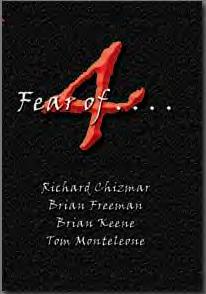

TFM: One of the things my father did for me was buy comics for me as a kid. This was back when I was 10 and there were only three channels on the TV; you couldn’t throw in a DVD anytime you felt like it. Reading was a much bigger avenue, like comic books for younger kids. There was a lot of strange, interesting stuff out there.
My father was into that stuff too, and he had read pulp in the earlier generation, pulp magazines in the ‘30s and ‘40s, and he liked watching strange movies and he used to take me to horror films all the time. That really helped build my sense of wonder, sense of curiosity about the world.
I think if you want to write fiction, whatever it is—romance, mysteries, fantasies, spy thrillers, family sagas, whatever—you have to have this imaginative view of the world. You have to look at everything you see and ask questions about things, wonder where they came from. Ask questions about what it would be like if it was different. All the things writers learn to do unconsciously, we did when we were kids, looking at the world like, “Gosh, gee, wow, what the heck is that?” And I think we should keep that. The secret to being creative, and not just writing—music, dance, theater, painting too—is that you wonder about the world, what’s going on, how things tick, and what would happen if things changed a little bit or if they changed a lot. Always ask yourself questions.
I went to Jesuit high school at Baltimore Loyola, and I had some really good teachers that really challenged the way you think and the way you look at the world philosophically. One teacher told me that one thing you can always do is ask the next question; don’t ever take any particular answer for your final answer. And that was a really amazing thing for me. I never forgot it. It allows the writer to trust his instincts when he’s telling a story.
I hope that makes sense.
NG: It does. I remember in high school some of the teachers that encouraged me, and it really does make a difference at that age.
TFM:Yeah, it makes the difference between somebody telling you “are you crazy; you’re just a dreamer, get your head out of the clouds, go get a real job.” And I had people tell me that as I was moving along. It’s really funny. It’s like when you quit smoking and all of your friends are still smoking. They’re glad you quit, but they’re pissed off because they’re still smoking. It’s like, yeah, they’re glad you sold a short story to Playboy for $3000, but they’re pissed off because you’re accomplishing things that they’re not.
So there’s always that. You’re always going to have people that are going to tell you to forget about your dreams. But you have to know what you want to do and do it. If you want to be a writer, ask questions.
I was the first one in my family to go to college. My grandfather came over here from Sicily when he was 15, and he had a bakery in New York, but he didn’t go to college, none of his kids went to college; I was one of the first kids born after WWII to go to college. So that was a big deal. I came from one of those families.
NG: You worked hard and found what it was you wanted to do.
TFM: Yeah, my father worked Bethlehem Steel in a shipyard for 30 years.
NG: Wow. Very cool.
3) Borderlands has a boot camp for writers of dark fiction. You and your wife, Elizabeth, decided to start it after getting many submissions that needed some work. How was the camp received when it first started, and how has it evolved over the years? Also, you just had one this past winter; how did that go.
TFM: We just had our most recent boot camp, which was one of our most successful, I think. The way we do it is we have people send in samples, and we advertise the boot camp.
We try to bring out all the things that go into life, that separate good writing from bad writing. And one of the things Elizabeth and I try to do is find 20 writers of all about the same level and skill of accomplishment. You’re never going to see already hugely successful writers there; if someone sends me something that’s so brilliantly done, what’s the point? Or if someone sends me something that’s so . . .
NG: Bad?
TFM: Not bad, necessarily, but something that’s at a very, very beginning novice level, where they’re at the point where they barely understand subtext or dialog or what it is or how you even format it, then they’re going to get overwhelmed in the boot camp. So we don’t want someone that’s so behind the curve that they’re going to get pulverized by the level of criticism. We try to find writers that are in that mid-level, where the have skill but maybe haven’t polished their ability yet or they have gaps in their understanding.
And what happens is they come in on Friday and we do a panel discussion and pre-planned exercises. The heavy day is Saturday, where we workshop from about 8am to 2am. We really beat them up. The re-worked pieces submitted on Sunday are so vastly improved from what they originally submitted, it’s like sorcery. It’s like, “How the hell did that happen?” They really do learn, and they really are fun to watch because they want to absorb that information. They’ve never had feedback or interacted with other writers like that before.
Every boot camp we’ve done—it’s been going on for four years now, about twice a year—we’ll do a short fiction and novel workshop. And people get together and trade e-mails back and forth, critique back and forth, and a little support group forms. Isn’t that cool?
NG: Yeah, it is.
TFM: It really works. Out of 140 or so writers that have come through our program, I’d say we’ve had 15% or 20% or so that have gone on to become professional writers.
We didn’t always have this process all figured out; we just kind of stumbled along and through trial and error figured out what works and what doesn’t. And we get great writers to come in as instructors. We’ve had David Morrell several times, the guy that did First Blood. We’ve had Peter Straub, F. Paul Wilson, Jack Ketchum; we’ve had really good writers come in. And the participants really want to say, “Hey, I hung out with Jack Ketchum this weekend.”
We have to have people send in writing samples so that we can get a gauge as to where they are. And it’s not cheap [the boot camp] because we have to pay a premium for insurance, and we have to pay our instructors. But it’s a good program.
NG: It sounds very rewarding.
TFM: It is, it’s a challenge. It’s a good program; we like to spread the word about it and make sure people get what they pay for. People can apply at www.borderlandspress.com
4) You’re the keynote speaker for the Maryland Writers’ Association 20th Anniversary Conference. How do you prepare for such events?
TFM: I’ve done a lot of public speaking and public readings, and I know this is going to sound ridiculous, but I do very little preparation beforehand. I basically write a few points on a card, then go up there and try to keep it like we’re on the front porch kicking stuff around. I can’t stand these canned speeches where these people read off of note cards and sound like someone stuck a broomstick up their butt. Or, worse, that they just read their speech. I can’t stand that. And I’ve found over time that I know so much crap about what I do, I can just turn it on and off. My wife has heard all this stuff a thousand times, and she says, “Don’t bore them,” or “Don’t forget you’re not funny.” And I’m okay with that, she’s heard it a bunch of times. I like to keep it informal, and open it up with questions. The worst thing you can do is come up there with this prepackaged thing that just lays an egg.
I don’t like to prepare. I have a lot of confidence in my ability to just get up there and wing it, so that’s pretty much what ‘m going to be doing. Are you going?
NG: I’m thinking about volunteering so that I can go.
TFM: Have you written a lot yourself?
NG: Yeah, but I still feel I have a lot to learn.
TFM: Well, you know what, so do I. Don’t kid yourself. I’m not sitting here like I’m rolling knowledge down the slopes of Mount Olympus here. Every day I’m learning new stuff.
One of the things I tell new writers is that once you become a writer, once you learn what good writing is, you’ll never just read for pleasure again. Anytime you read something that really works, you’re going to re-read and deconstruct and try to figure out what that writer did and why it works.
NG: That’s so true. I find myself wondering why a writer used a certain word, or why they choose to write a sentence a certain way.
TFM: It’s an amazing process, the learning never stops. Once you get your own style, you don’t worry about the mechanics like you used to, but you have to continue learning. You have to always be willing to learn a new trick.
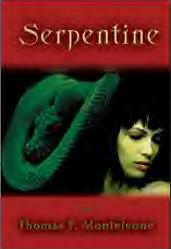
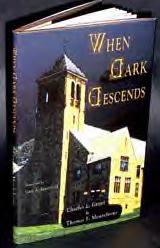
5) This also goes with the previous question. What was it like the first time you were asked to speak at an event?
TFM: Oh, God, I’ll never forget it. When I was going to grad school at the University of Maryland, I was living in a little town called Greenbelt, which is just outside of Maryland. I was at the library—they had a little library—and I was in there one afternoon doing research for a story. You know, I wasn’t one of those guys that went around telling everyone that I was an author or any of that crap. I was selling short stories to little digests and science fiction magazines. But the librarian asked me if I was a writer and then asked me to come in for the monthly talk, the book group they had.
Anyway, there was one older guy in the audience, this really cranky character; he was apparently there to take issue with whatever I said. He really tried to make it difficult. And I’m an Italian guy; when I was younger, I had a chip on my shoulder all the time—don’t mess with me. That was my attitude. I was always the skinny kid, the small kid, people always wrote me off.
So I’m trying to give this nice talk in this small town library, and this guy’s messing with me. So I had it out with him, right there. Not physically, but I called him out and said, “Hey, what the hell is your problem? You want to mess around with me? You want to get up here and do this? I’ll sit in the audience while you get up here and talk.”
So the whole thing was a disaster. I was 25-years-old at the time, and people were like, “Who is this crazy kid?” So my first speaking engagement was not great. It wasn’t like I went in and I was nervous and all that. I just figured I’d go in and tell them how I got started, here’s what I did—I beat my brains in for three years. I sent out stories to like 35, 40 different magazines. I got 231 rejections before I sold my first story—and, yes, I did count them—I sold my first story for $30 at a penny a word. Back then there was no e-mail. You put stamps on an envelope and mailed out your manuscript. And you kept doing it until someone noticed. And that was the message I tried to tell to 11 people at the library that day. The 12th didn’t give a shit.
NG: Well, I guess the heckler did learn something that day.
TFM: Yeah, don’t mess with Tom.
6) Having been in the business for so long, what are some common mistakes that you see new authors making?
TFM: I think it depends on the stage in the career; we make mistakes all the way through, just different mistakes. When writers are first getting started, the initial assumption is that’s it’s pretty easy. And this has happened more recently with online places like blogs.
Every once in a while, Elizabeth and I will get stories with cover letters that will say something like, “Hello, my name is Mickey. I’ve sold 183 stories, and I hope you like this one.” And I think, 183 stories? Where the hell has he published 183 stories? First of all, I’ve never heard of this guy. I’ve been writing short fiction for 30 years and I’ve published maybe a hundred. But they’re all real! They’re in magazines and anthologies. So I’ll look these people up and see that they’re publishing on blogs or in online magazines that three people click on. And it’s sad. It’s a big mistake that writers are still making. They’re taking any phantom acceptance for validation of their professional status. They’re not learning anything when they do that.
I can’t tell you how many times people come into the workshop and get surprised by the criticism. And they can’t believe it. They’ll say, “But this was accepted by Dark Intestines Magazine on the web and the editor said it was great.”
The other error that writers make, as they get more into it, is that they get discouraged because they don’t realize that rejection and criticism are part of the process of becoming a writer. And they get to a point where they just can’t take it anymore.
Or they think they’ve paid their dues and are beyond criticism. Once you start believing your own press clippings, that’s dangerous, because then you start to alienate other writers, editors, and publishers you work with, and that’s bad. I’ve gotten submissions where they’ll say they won’t accept anything less than 12 cents a word. Well, good for you.
NG: Bye!
TFM: Yeah, let me deal with that. That’s my decision, not yours. Let me read it, tell you what I’m paying. Then you decide if that’s something you want to accept or not. Don’t come in the door telling me what I have to pay you. That’s ridiculous.
NG: I think the publishing industry tends to be more forgiving to writers if they can learn from their mistakes.
TFM: Absolutely. One thing writers have to remember is that the more persistent they are, the more editors and publishers remember them. If a writer keeps sending stories in, after a while you start to remember their name. What happens—and I’ve talked to plenty of editors that say the same thing—you start to pull for these people. You want them do well, because you want to see that kind of persistence rewarded.
NG: This is getting a little off of the interview, but I was reading something a little while ago about people sending back rude e-mails to a standard rejection, and that always surprises me.
TFM: You mean they get pissed off because they get rejected?
NG: Yeah, like, “Oh, what the f— do you know, f— you, man.”
TFM: Wow, not only is that counterproductive, it cements the fact that you’ll never get published by that particular magazine.
Every once in a while we’ll have proven pros submit, that have sold lots of stories and published novels, and they just assume that because of who they are you’re going to buy it. We’ve rejected stories from seasoned pros, and some will take it the right way, say, “Eh, it’s all right, way it goes,” and other ones will get unbelievably pissy. Wow, get some decorum. You’re supposed to be a pro, take it like a pro.
7) You’ve mentioned before that it seems that horror is losing its fan base in the mainstream markets. Besides writing good stories, what do you think writers can do to turn the tide? What are you seeing in the speculative fiction field that gives you some hope for future generations of horror writers?
TFM: It’s funny that you narrowed it down that way. I do think that of all of the genres, the Gothic has roots, and horror as well, in the beginnings of American literature—Poe, Hawthorn, people like that. I don’t think that horror will go away. People are constantly concerned with fear—fear of the unknown, fear of death, what’s beyond the closed door—these are almost animistic parts of us. That’s always going to be viable.
It’s [horror] just going to ride the roller coaster of what’s in and what’s not. And I think with most writers that achieve a certain status, the audience gets pissed off because they’re not doing the same thing. It’s like with bands—fans go to the concerts to see their favorite songs performed and start to get peeved when the band does their new stuff.
But I don’t think you can predict what’s going to sell. You have to write what you like, write what works for you, and believe you’re going to find your audience. If you try to tailor it to the market, you’re not going to be happy. You’ll end up writing dead prose that’s not coming from inside you.
NG: Right. By the time you finish it and get it out there, the tide will already have changed.
TFM: Yeah, you have to write what you like and hope you’re in a commercial literary movement. That’s how it happens. It’s not a science; it’s the difference between art and science.
8) For those that are unfamiliar with your work, what can they expect when they pick up one of your story collections or novels?
I think I write differently in the short form than in the long form. In short form I lean more towards less controlled language, more imagery and symbolism. Maybe surreal and odd. I’m not a literary writer, I’m a storyteller. I think that no matter what I’m writing.
I know that if I was born a thousand years ago, I’d be the guy running around the castle all the time, in that funny little hat with a puppet on a stick. That’d be my job. And I’d be okay with that. So that’s my first priority, to entertain.
With novels, I try to write a lean, mean story-oriented plot. I try to set up psychological characters that get mixed up in situations, and see where they take the story. I try to write cinematically—change point of view, change scenes, experiment with the narrative thread–to make the reader piece together what I leave out. It’s like that old cliche, that old trick used to keep th reader turning the page. They never know what’s coming next.
I always know how I want a novel to end, and I set up the beginning. Part of the fun for me is seeing how it’s going to get to the end. But with short stories, I never know where it’s going to go. I start with an idea, or question, and then I just let it go. Sometimes it doesn’t work, sometimes it takes me places I never thought I was going to go.
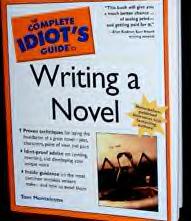
9) Do you write every day?
TFM: Yes. If you don’t do that, you’re crazy. It has to be part of your everyday routine, like kissing your wife or eating food or whatever. I tell people the secret to this is to do three pages a day. Take time off on the weekend for good behavior, to do your chores, go to your kids’ little league games.
That’s 15 pages a week, 60 pages a month. If you do that for six months, you have about a 360 page novel. It’s very simple. Three freakin’ pages, that’s all I ever try to do.
Sometimes I do less, sometimes I do more, but I always shoot for three pages. If you don’t write every day you’re just playing around.
I lived up in New Hampshire for a while, my wife and I lived up there with our daughter, and we had a good time. But it was cold and when it came time for high school, we couldn’t find a good Catholic school for her, so we came back here.
I had a bunch of buddies there that worked at one of the universities there, and every once in a while I’d meet people in their English department, and they were writing a novel for seven years. “Oh, yes, I’ve been working on a novel, bup-bup-bup.” What a load of crap. What are you talking about? Seven years? These are the kind of guys that say, “If I can write one sentence a day, I feel like I’ve done a day’s work.” What? No, you’ve just been crapping around.
When I was younger, those were the kinds of guys I ways wanted to pop. My wife has talked me down from that over the years. But what a joke. One sentence a day.
NG: One sentence; everything they touch is gold.
TFM: I can’t stand that. Three pages a day. Grind it out, do your work. Even if you have a regular job.
Over the years I’ve known a lot of people that write for journals and newspapers but want to write novels. The problem with that is that they’re writing stuff all day, stuff they don’t like. And when they get home, they don’t want to write. I tell them to go get a job doing something else, get your mind off that writing so you can do the writing you want to do.
10) You’ve also written screenplays. How do you think the process is different for writing screenplays verses novels or short stories?
TFM: One big difference is I get paid for my novels. I’ve written like 14 screenplays, and I got paid for a few of them, but they weren’t produced. However, I’ve had three or four television episodes produced.
The film industry is a different creature. It makes publishing look like a tea-and-crumpets party. It took me years to realize that it’s just a different planet. But I liked the process of learning how to write screenplays. It’s very different. It’s dialog oriented. The three-act structure—first act you expose the problem, second act you complicate the problem, third act you solve the problem. It’s good training. It doesn’t hurt anything to buy a few books and learn how to do it.
The problem with the industry is they look at writers like a necessary evil. They don’t want you around. And it’s a tradition that goes back to the old studio days when writers used to be staff. They had the writers come in for the day and write whatever they were told to write. Write a 15 minute comedy for Buster Keaton. Write me a PSA for bike safety. Write me whatever. And they were just looked upon as hired hands, like the guy that cut the hedges. And that attitude has persisted.
NG: Yeah, I went to film school.
TFM: Oh, you did? East Coast or West Coast?
NG: West Coast.
TFM: So you know what I’m talking about.
NG: I remember; it’s totally different.
TFM: They drove me crazy. I used to go out there—I have a TV agent—and every once in a while they would drag me out there to pitch something. I actually sold a television series to Columbia Tri-Star about seven or eight years ago, and CBS was partnering with it. And I wanted to write the pilot. Well, they weren’t having anything to do with that. CBS said, “Oh, no, we have our own writers.” So they brought in these writers that trashed the pilot so terribly that Columbia Tri-Star backed out. I got to keep the money. But they don’t trust writers. If you can write a novel, they look at you like you’re a freak.
I sold screenplays that never got produced. And I’ve had them buy my books and have other people write screenplays that were almost unrecognizable. I said to one producer, “Why did you spend all that money to buy my book? It’s not even the same story. You changed only everything. If I saw this movie, I would never say, ‘Hey, you stole my book.’ It’s not even the same story.”
It’s a different reality. If someone asked me, “Would you write a screenplay on spec?” my first tendency is to say no. And then I say, well, give me some gross points or something. Because they all want to talk net.
NG: Oh, yeah, yeah. “Net.”
TFM: Net is just Hollywoodese for “hide the money.”
NG: That money you were expecting? Sorry.
TFM: The only net in Hollywood is the one they throw over you as they run away. But I continue to be seduced by Hollywood.
NG: It does have that quality. When I got into school, I was majoring in English. And by the end of my junior or senior year I was majoring in Cinema.
TFM: Are you a West Coast person?
NG: No, I was raised pretty much East Coast, though I’ve lived all over.
TFM: Are you a Balimore girl?
NG: I consider myself sort of one now, I guess; I’ve lived here for a while. The thing with the West Coast is it never felt entirely real, it felt like an office.
TFM: I totally agree. Especially in LA, there’s this über-culture of people making obscene amounts of money. They kind of wade through the regular people, and they look at everybody as if they’re only half there. But it would be like us living in a town where you buy a car for $180, or you go eat for 25 cents a night. They make so much money, prices don’t mean anything.
I was out there with a buddy of mine, an actor, and he was making a lot of money. So he wanted to go play golf, and it was $600 a round. Are you crazy? I lived in New Hampshire and paid $500 a year to play golf. But they don’t even realize it.
Okay, I have to stop ranting.
11) What other projects are you working on now?
TFM: I’m finishing a YA novel. I have about 50 pages left. Then I’ve got another novel, a 600 page thriller I’m working on. It alternates between the present and WWII. A historical thriller. It took a lot of research, and I had to do a couple of books in-between, so it’s taken me about two years to write—which I hate. I’m about 40 pages from finishing that.
I’m also doing a ghostwriting project. So, yeah, I’m very busy.
12) Any other advice for writers?
TFM: The most important thing is that no one can stop you from becoming a professional writer besides yourself. You have to keep going after your dream. It takes a lot of hard work and persistence. You have to believe in your ability and in your dream.
###
Please visit Borderlands Press and check out the books by Thomas F. Monteleone and other great writers of dark fiction. While you’re there, look into applying to the upcoming Borderlands Press Bootcamp. And don’t forget that the Maryland Writers’ Conference is this Saturday, May 3rd. There’s still time to register.
Nancy O. Greene


















You must be logged in to post a comment.